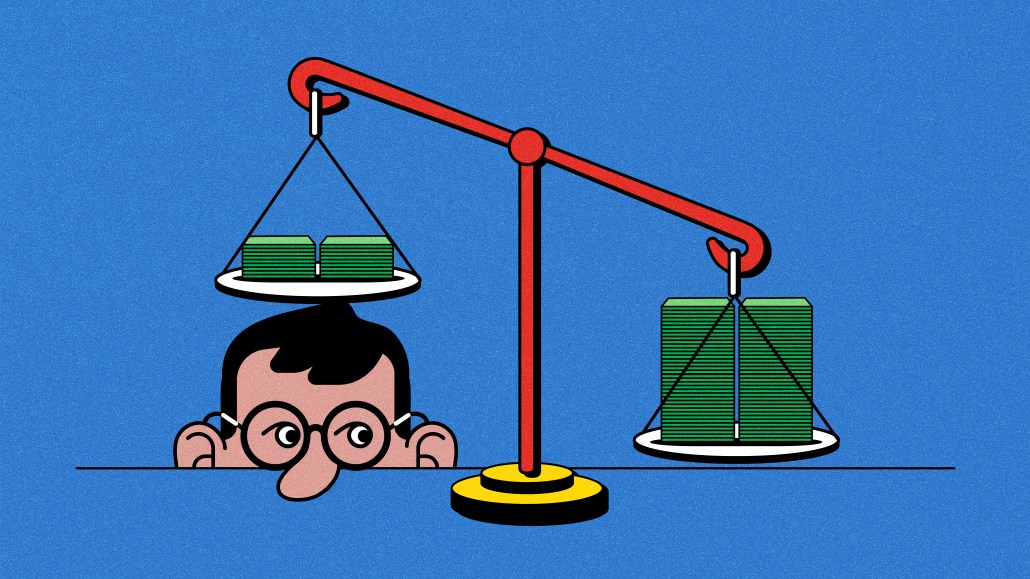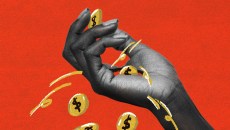Secure your place at the Digiday Media Buying Summit in Nashville, March 2-4
Ad tech’s week on Wall Street underscores critical industry challenges

The leading lights of publicly listed, independent ad tech companies issued their latest quarterly earnings reports this week, with the cratering DoubleVerify’s stock price the clear highlight/lowlight of proceedings.
Amidst the earnings reports, the prolonged fate of the third-party cookie remained a significant question mark. Every attentive analyst was concerned about the potential impact on each company’s ability to sustain its respective business models.
The revenue numbers disclosed indicated that some are faring better than others in the industry’s current existential crisis, but overall, all were net-positive. What they did verify is that The Trade Desk continues to be the leader of this sub-sector. Execs there continue to trumpet its UID2 as a vehicle for its path ahead — or “Wall Street narrative” — away from championing the “open web” toward one where “CTV” and “retail media” are used to woo investors.
Separately, Criteo — the cohort member with the most modest rise — continued to evangelize how retail media will help the company, initially renowned as the number one ad retargeting outfit in town, realize a new identity. However, as Digiday reported earlier in the year, execs continue to tinker with monetizing the industry’s dependence on third-party cookies.
Elsewhere during the reporting period, supply-side players Magnite and PubMatic similarly capitalized on their recent developments, citing the dual trends toward CTV, retail media, and (of course) their abilities to last the course in the game of SPO. Magnite’s advocates can highlight its role in Disney’s ad tech plans, while PubMatic is partnering with outfits like Klarna and Roblox to demonstrate its longevity.
Meanwhile, the sector’s chattering classes have focused on the measurement and verification space, with DoubleVerify lowering its full-year guidance “primarily due to uneven spending patterns” from a select range of clients.
In the immediate aftermath of the Tuesday disclosure, both companies’ stock prices dropped by more than a third. While they have since recuperated (somewhat), neither has recovered to their early May 7 pricing at the time of writing.
The reasons are manifold, and few high-profile investors have stated their reasons for the precipitous reduction in their valuations. Still, it is worth noting that the content verification sector has been under close scrutiny for the past year, due in no small part to the work of research firm Adalytics, which also plays a role in the continued nuisance of made-for-advertising websites the subject of much chagrin.
Some will point to ongoing headlines about scandals, such as the recent Forbes domain spoofing, and how this is only likely to intensify advertisers’ scrutiny, some of whom may entertain the pitches of potential measurement interlopers.
Meanwhile, others continue to question when investors will see an ROI on their respective M&A moves after they debuted on the public markets during the post-pandemic gold rush.
More in Media Buying

Omnicom’s lack of surprises in its 2025 earnings is both a good and bad thing
Results were neither spectacularly good nor terribly bad, with 2025 revenue up 10%, thanks in part to including one month of revenue from Interpublic Group

How the MLS plans to convert World Cup interest into lasting soccer fandom
Alongside advertisers and publishers, the league hopes to use a rare opportunity to promote soccer in the U.S.

AdCP vs. IAB Tech Lab: Inside programmatic advertising’s agentic AI standards showdown
Ad Context Protocol and IAB Tech Lab’s Agentic Roadmap offer two competing approaches for updating ad tech for AI agents. Can they coexist?









